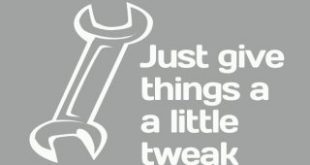[embedded content] Advertisements
Read More »New Keynesian ‘tweaking’ won’t do the job
New Keynesian ‘tweaking’ won’t do the job Whereas the Great Depression of the 1930s produced Keynesian economics, and the stagflation of the 1970s produced Milton Friedman’s monetarism, the Great Recession has produced no similar intellectual shift. This is deeply depressing to young students of economics, who hoped for a suitably challenging response from the profession. Why has there been none? Krugman’s answer is typically ingenious: the old...
Read More »Pornography and infidelity — moderation and mediation in SPSS
Pornography and infidelity — moderation and mediation in SPSS [embedded content] One of the things yours truly appreciates with Andy and his book Discovering statistics using SPSS is the thought-provoking examples used … Advertisements
Read More »Reward work, not wealth
Reward work, not wealth Eighty-two percent of the wealth generated last year went to the richest one percent of the global population, while the 3.7 billion people who make up the poorest half of the world saw no increase in their wealth, according to a new Oxfam report released today … Billionaire wealth has risen by an annual average of 13 percent since 2010 – six times faster than the wages of ordinary workers, which have risen by a yearly average of...
Read More »The immorality of lying
The immorality of lying The immorality of lying does not consist in the offence against sacrosanct truth. An appeal to truth is scarcely a prerogative of a society which dragoons its members to own up the better to hunt them down. It ill befits universal untruth to insist on particular truth, while immediately converting it into its opposite … Nobody believes anybody, everyone is in the know. Lies are told only to convey to someone that one has no need...
Read More »Memento
A first precaution for writers: in every text, every piece, every paragraph to check whether the central motif stands out clearly enough. Anyone wishing to express something is so carried away by it that he ceases to reflect on it. Too close to his intention, ‘in his thoughts’, he forgets to say what he wants to say. No improvement is too small or trivial to be worthwhile. Of a hundred alterations each may seem trifling or pedantic by itself; together they can raise the text...
Read More »Trump — the worst president ever
Trump — the worst president ever Mr. Trump’s first year has been an unremitting parade of disgraces that have demeaned him as well as the dignity of his office, and he has shown that this is exactly how he believes he should govern. Most important, he is the first president to fail to defend the nation from an attack on our democracy by a hostile foreign power — and to resist the investigation of that attack. He is the first to enrich his private...
Read More »Online teaching hurts the weakest students
Online teaching hurts the weakest students A single teacher can reach thousands of students in an online course, opening up a world of knowledge to anyone with an internet connection. This limitless reach also offers substantial benefits for school districts that need to save money, by reducing the number of teachers. But in high schools and colleges, there is mounting evidence that the growth of online education is hurting a critical group: the less...
Read More »Why you should distrust the twisted ‘identity politics’ ideology
Why you should distrust the twisted ‘identity politics’ ideology [embedded content] Advertisements
Read More »Mainstream economics gets the priorities wrong
Mainstream economics gets the priorities wrong There is something about the way economists construct their models nowadays that obviously doesn’t sit right. The one-sided, almost religious, insistence on axiomatic-deductivist modelling as the only scientific activity worthy of pursuing in economics still has not given way to methodological pluralism based on ontological considerations (rather than formalistic tractability). In their search for model-based...
Read More » Lars P. Syll
Lars P. Syll







